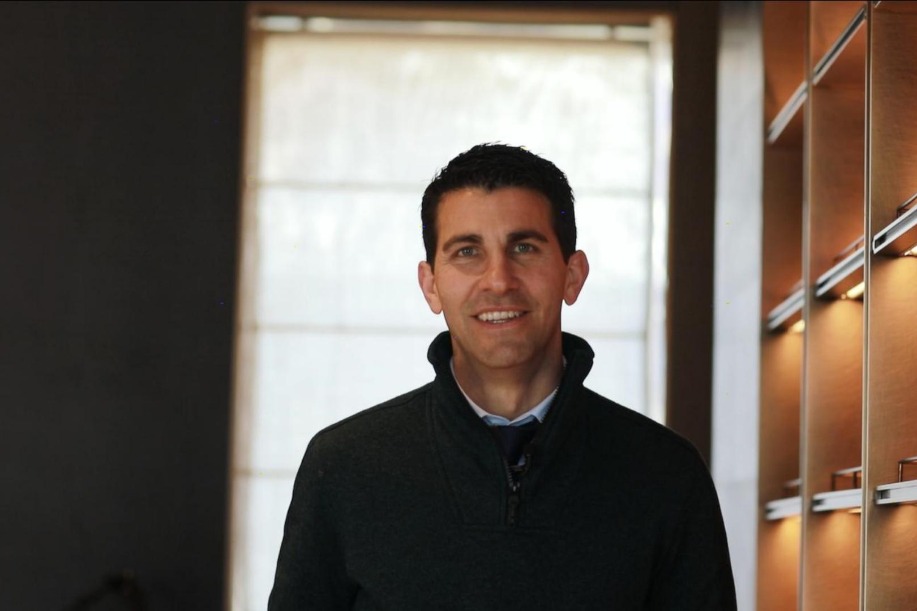Attracted by brains and beauty

The city of Brighton is using education and tourism to build closer ties with China
British seaside city Brighton is rapidly expanding its cultural ties with China, especially in education and tourism, which are two areas for which the city is known.
The University of Sussex, located in the heart of the city, has 1,100 Chinese enrolled, comprising 35 percent of its student population.
| Students and teachers at the Confucius classroom at Brighton College. Cecily Liu / China Daily |
Brighton College, a famous public school established in 1845, was one of the first schools to make Mandarin compulsory. It introduced the subject in 2006, making it compulsory at some levels, and subsequently has made it a required subject for students aged from three to 14.
Alan Bird, deputy headmaster of Brighton College, says the school decided to establish a Confucius Classroom because the school and students recognize the growing importance of China.
"A lot of our students are outward looking, so they appreciate that Mandarin is much more useful than other languages that are perhaps popular 20-30 years ago," Bird says.
"In addition, we have a popular Mandarin classroom that makes teaching fun, so students want to come and learn, and they often choose to take Mandarin beyond the compulsory-year levels."
The college has five full-time Mandarin teachers for about 800 students. The school has 1,500 students in total. Each of the classes lasts about an hour, and students receive lessons once a week.
Theirs is one of the earliest independent Confucius Classrooms in the UK. The Classroom program is for secondary schools.
Confucius Institutes, started by the Chinese government in 2004 to promote Chinese language and culture abroad, are nonprofit organizations affiliated with Western colleges and universities.
Most Confucius Classrooms in UK secondary schools receive assistance through relationships with British universities. But Brighton College's Confucius Classroom is established independently in the UK through maintaining a partnership with the secondary school affiliated with Tsinghua University in Beijing.
There are 25 Confucius Institutes and more than 100 Confucius Classrooms in the UK, according to the Chinese embassy in London.
Brighton College also offers Mandarin as an exam subject for the General Certificate of Secondary Education and A-level studies. There are about 80 GCSE students and 15-20 A-level students learning Mandarin.
One of the instructors teaches Mandarin at prep-school and pre-prep levels for students aged 8-13 and 3-8, respectively.
Many of the students at Brighton College have already visited China through school exchange trips with the High School attached to Tsinghua University.
The classrooms are fun for students, and have a mix of activities. The teacher may play the guitar and ask students to sing along in Mandarin, lead students in refreshing their vocabulary, or have them watch a video to learn new words.
Thomas Godber, one of the Mandarin teachers at Brighton College, says he typically combines a lesson with some new vocabulary learning with activities.
In a lesson about Chinese food and shopping for students 13-14 years old, Godber writes the Chinese and English words on a piece of paper and asks students to repeat after him. Then he shows a light-hearted video in which he walks into a supermarket and points out the names of things in Mandarin.
Shao Zheng, counselor for press and public affairs at the Chinese embassy in London, says he is impressed by the emphasis and dedication that Brighton College has given to Mandarin, and to learning about Chinese culture.
Shao recently gave a speech to a classroom of Brighton College students about China, Chinese culture and the Chinese dream. At the end of the speech, Shao took a dozen questions from students, and was impressed by the high quality of questions.
"The students are obviously very interested in and informed about China. Their questions reflect that they are following the news about what China is doing in the world today," Shao says.
The students' questions include China's political relationship with neighboring countries, Chinese investment in Africa, Chinese investment in the UK's nuclear sector, challenges to China's future development, and China's internal political affairs.
Shao says Brighton College has set a good example and high standards for education collaboration between Chinese and UK schools, and he told the students he recommended they go to China more often and see more of the country.
Shao also says he is impressed by the University of Sussex, which also works to attract overseas students. Established in 1961 during a wave of higher education expansion, the university has a focus on interdisciplinary teaching and learning.
Martin Hookham, head of the international office at the university, says business studies, media studies and engineering are all popular with Chinese students, with about 110 in each discipline.
The university also has academic partnerships with Renmin, Peking and Nanjing universities in China.
In March 2015, the university will host its first graduation ceremony in Beijing, where those who have graduated can participate without coming to the UK.
Apart from student exchanges, many academics from the university have individual exchanges with researchers in China.
Wang Yi, a lecturer in climate change at the University of Sussex, says he is working on a few research projects funded by the National Science Foundation of China, studying monsoon patterns in China and other countries.
Wang says working with Chinese academics allows him to access important research methods and data in China, and use his global perspective and expertise to help his Chinese partners focus their research.
"Because academic research in many niche sectors in China is still quite new and fresh, there may be a lack of focus or direction, and I'd like to think my contribution is to give some guidance and direction suggestions to my Chinese colleagues."
He also helps guide the doctoral students of his Chinese colleagues, who visit the UK for short-term exchanges, so these students can also gain a global perspective.
Apart from education, Brighton's tourism industry is also keen to attract Chinese tourists, knowing the increasingly important contribution they are making to the UK's tourism industry.
"We would certainly want to target Chinese tourists and show them what the city can offer," says Charlotte Barrow, marketing officer of VisitBrighton, the tourism promotional arm of the local council.
Barrow says her team has joined with VisitBrighton to host visits of important Chinese delegations in the city so they can help spread the word. Most of the city's tourists now are from European countries like France and Germany.
The two key attractions in Brighton are the beach and the Royal Pavilion, which surprisingly has many Chinese influences and artistic references.
With construction beginning in 1787 as a seaside retreat for George, Prince of Wales, the pavilion was built in the Indo-Saracenic Revival style popular with British architects in the late 19th century in India.
Chinese-style paintings, bamboo staircases, and oriental symbols such as dragons often surprise Chinese visitors, says Francoise Haslam-Dodo, a local guide who takes visitors on tours.
Chinese visitors also often find mistakes Western artists made in their attempt to imitate Chinese art, Haslam-Dodo says.
"At the time, it was often very common for grand palaces and estates to have one room dedicated to Chinese displays to show that the family had a taste for exotic art, but here the whole pavilion is full of Chinese art references, which is incredible."
Barrow says she hopes more Chinese tourists will visit Brighton as their understanding of its treasures increases.
"I think it's a matter of time and awareness, because many long-haul tourists don't currently realize that we are so close to London and easy to get to and have such a rich cultural experience. We hope this will change in the future with Chinese tourists."
cecily.liu@chinadaily.com.cn
(China Daily European Weekly 12/05/2014 page26)
Today's Top News
- Xi congratulates Yoweri Museveni on re-election as president of Uganda
- Senior military officials under investigation: Defense Ministry
- Systematic approach sees return of clear waters to the Yangtze River
- IP protection for new fields to improve
- Draft rules define premade dishes in consumer interest
- Xi greets To Lam on election as Vietnam party leader































